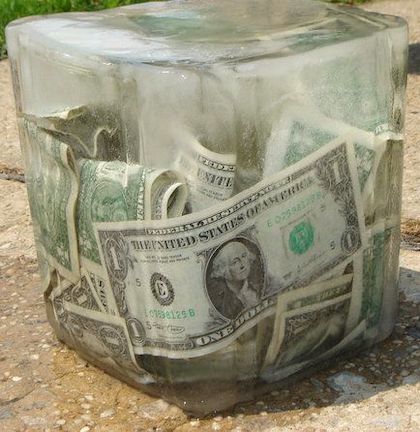In this hobby we’re really good at moving money around from bank a, to credit card b, to debit card c, then maybe back to bank a. We’re also good at parking money in accounts for a $750 bonus at Bank of the West or a $600 bonus at HSBC. If you’re like me, that means large sums of money are occasionally sitting in bank accounts, partially as a cushion for lax record keeping in order to avoid overdrafts in case you forget about a pending ACH or charge, and partially as a holding pen for sign-up bonuses or other perks. (And let’s not talk about the stack of gift cards waiting to be liquidated on my desk on any given day.)
When you’re letting money sit you’re subject to the opportunity cost of what that cash could earn if you didn’t leave it parked in some rando bank account. That money could instead be invested in high interest checking accounts (3-5% APR can be had with just a little bit of effort and some scheduled Plastiq $1.00 payments or with Debbit), maybe in US Treasury bills, perhaps you could be putting your money into buying Playstation 5s or graphics cards for resale, or you could be actively or passively investing in the stock market. All of those things will (hopefully) earn you money, and it’s quite likely that you’ll earn more money in those vehicles than the almost nil interest rate your bank probably pays. You’ll potentially earn more than you’re getting with sign-up bonuses too.
MilesEarnAndBurn Case Study: I’m a 90% passive index fund investor (VTI and VEU if you must know) with the other 10% being my own active stock picking based on fundamental market value and a very small smidge of speculation. I’m often right enough about my active stock picks that my 10% allocation grows to be 12% or 14%, so I rebalance back to the 90/10 split and keep going. What does that tell me? If I had a smaller cushion in my bank accounts and better record keeping about money flowing around, I’d have more money for investing, which will almost certainly outperform my stupid 0.005% APR checking account returns in the long run. I’m costing myself real money with my current strategies. I can and will do better.
Takeaway: Pease take a few minutes this weekend to think about your cash, how it sits and how it flows, and whether you’re using it in a way that you’re happy with. Don’t discount that there’s inherent value in simplicity too, if it’s just easier to let an extra $10,000 sit at a bank account to avoid the mental load of more strenuous record keeping, so be it. To be sure, I’m not suggesting any one particular investment vehicle or investment strategy — do what works for you, but please make sure what you’re doing is intentional.
